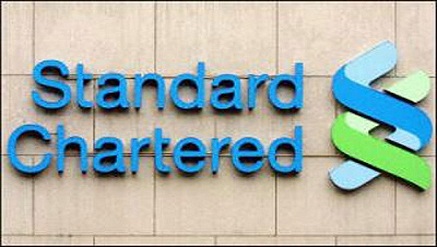A new devise to capture real-time price trends in the Nigerian formal and informal markets has been officially unveiled by Standard Chartered Bank (SCB) to enable it obtain accurate price data, which it said have always been a challenge in developing economies.
The technique, Standard Chartered-Premise Consumer Price Tracker (SC-PCPT), is being implemented in partnership with Premise and adopts innovative crowd-sourcing technology to gather real-time, on-field data on prices of grains/flours and starchy vegetables, which are key drivers of this price trend.
In a teleconference, Razia Khan, head, Africa Macro Research, SCB, UK, told newsmen that ahead of official Consumer Price Index (CPI) releases, “there are often limited means of observing underlying price trends, which contributes to information asymmetry and to greater uncertainty and costs for market participants.”
However, “by adopting innovative crowd sourcing technology, we provide a potential solution to this problem.”
The method, beginning with Nigeria in the African continent, will concentrate on the more populous centres of Lagos and Kano, alongside a few Abuja-based observations, while it would be extended to other African economies over time.
Bola Adesola, SCB chief executive officer, disclosed that over 350 people are engaged in capturing price information with their smartphones, taking photographs of food staples and their price tags (where available or information is taken) and uploading them to a central database.
According to her, “each week, price information on 21,000 data items is captured in this way. Geo-tracking provides location information. Participants are paid through top-up mobile phone credits. This allows for real-time collation and understanding of price trends and their geographic dispersion much sooner than it is likely to be available from any other source.”
This effort becomes necessary in view of the increased investment in Africa, which led to demand for better data, while “micro-level data is needed to support or refute big macro revisions.
Meanwhile, the August data analysis showed no significant effect of the Ebola outbreak on the Nigerian economy, owing mainly to government’s effort at containing its spread, the bank said.
Nevertheless, the bank said the exercise is not meant to create a new Nigerian CPI but, “as a grassroots data collection effort that allows us to engage better with local communities, it is aimed primarily at obtaining more accurate price information for a few staples.
“Over time, it will likely be possible to extend the price observations to other items. Through the innovative use of technology, we hope to resolve an age-old problem – information asymmetry – in a way that will allow us to deepen our understanding of the Nigerian economy.”
It noted further that “rapid real GDP growth and increasing investor interest in the region have highlighted the extent of the persistent data gap. Until now, the publication of high-frequency data for key African economies has not kept pace with expanding investor interest.
“This year alone, Nigeria, Zambia and Kenya announced sizeable revisions to their GDP, ranging from 20-89 percent. While the need for timelier rebasing of GDP data is now commonly accepted, there is also a growing realisation that better micro-level data is needed to complement this.
“Micro-level data can provide an additional check on large macro revisions, supporting or refuting what was previously believed. Greater investor involvement in individual markets also creates demand for more robust data. In order to scale up investor involvement in any market and attract greater capital flows, data availability needs to be enhanced.”

Leave a Reply